BOOKS

Continuing Bonds: New Understandings of Grief
– Dennis Klass, 2010
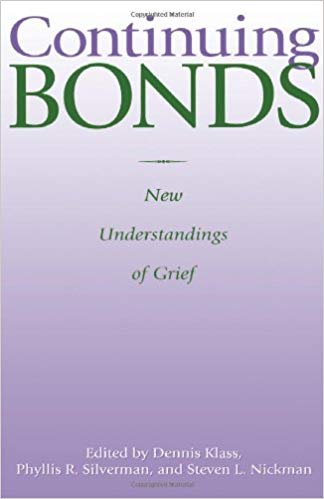 First published in 1996. This important book gives voice to an emerging consensus among bereavement scholars that our understanding of the grief process needs to be expanded. The dominant twentieth-century model holds that the function of grief and mourning is to cut bonds with the deceased, thereby freeing the survivor to reinvest in new relationships in the present. Pathological grief has been defined in terms of holding on to the deceased. Close examination reveals that this model is based more on the cultural values of modernity than on any substantial data of what people actually do.
First published in 1996. This important book gives voice to an emerging consensus among bereavement scholars that our understanding of the grief process needs to be expanded. The dominant twentieth-century model holds that the function of grief and mourning is to cut bonds with the deceased, thereby freeing the survivor to reinvest in new relationships in the present. Pathological grief has been defined in terms of holding on to the deceased. Close examination reveals that this model is based more on the cultural values of modernity than on any substantial data of what people actually do.
Presenting data from several populations, twenty-two authors – among the most respected in their fields – demonstrate that the healthy resolution of grief enables one to maintain a continuing bond with the deceased. Despite cultural disapproval and lack of validation by professionals, survivors find places for the dead in their ongoing lives and even in their communities. Such bonds are not denial; the deceased can provide resources for enriched functioning in the present.
THE WILDERNESS OF GRIEF: FINDING YOUR WAY
– Alan D. Wolfelt Ph.D., 2007
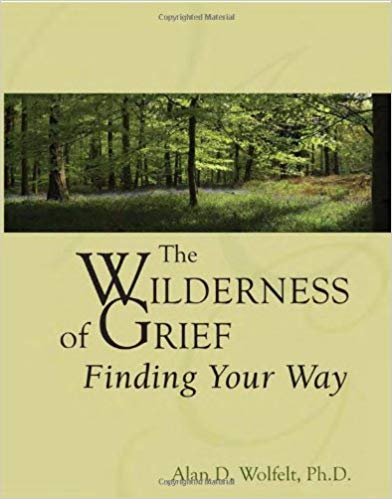 Based on the author’s previous guides to a 10-touchstone method of grief therapy, this book takes an inspirational approach to the material, presenting the idea of wilderness as a sustained metaphor for grief—and likening the death of a loved one to the experience of being wrenched from normal life and dropped down in the middle of nowhere. Feeling lost and afraid in this uncharted territory, people are initially overwhelmed, the book explains, but they begin to make their way through the new landscape by searching for trail markers—or touchstones—until they emerge as intrepid travelers climbing up out of despair. The touchstones for each step are described in short chapters such as “Embrace the Uniqueness of Your Loss,” “Recognize You Are Not Crazy,” and “Appreciate Your Transformation.”
Based on the author’s previous guides to a 10-touchstone method of grief therapy, this book takes an inspirational approach to the material, presenting the idea of wilderness as a sustained metaphor for grief—and likening the death of a loved one to the experience of being wrenched from normal life and dropped down in the middle of nowhere. Feeling lost and afraid in this uncharted territory, people are initially overwhelmed, the book explains, but they begin to make their way through the new landscape by searching for trail markers—or touchstones—until they emerge as intrepid travelers climbing up out of despair. The touchstones for each step are described in short chapters such as “Embrace the Uniqueness of Your Loss,” “Recognize You Are Not Crazy,” and “Appreciate Your Transformation.”
ENJOY EVERY SANDWICH: LIVING EACH DAY AS IF IT WERE YOUR LAST
–Lee Lipsentha, 2011
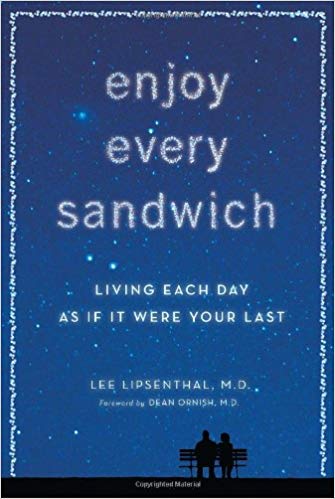 This book is a culmination of what I’ve learned. I hope it will open the door for you to embrace your humanity, accept uncertainty, and live a life of gratitude. —from Enjoy Every Sandwich
This book is a culmination of what I’ve learned. I hope it will open the door for you to embrace your humanity, accept uncertainty, and live a life of gratitude. —from Enjoy Every Sandwich
As medical director of the famed Preventive Medicine Research Institute, Lee Lipsenthal helped thousands of patients struggling with disease to overcome their fears of pain and death and to embrace a more joyful way of living. In his own life, happily married and the proud father of two remarkable children, Lee was similarly committed to living his life fully and gratefully each day.
The power of those beliefs was tested in July 2009, when Lee was diagnosed with esophageal cancer. As Lee and his wife, Kathy, navigated his diagnosis, illness, and treatment, he discovered that he did not fear death and that even as he was facing his own mortality, he felt more fully alive than ever before. In the bestselling tradition of Tuesdays with Morrie, told with humor and heart, and deeply inspiring, Enjoy Every Sandwich distills everything Lee learned about how we find meaning, purpose, and peace in our lives.
THE OTHER SIDE OF SADNESS: WHAT THE NEW SCIENCE OF BEREAVEMENT TELLS US ABOUT LIFE AFTER LOSS
– George A. Bonanno, 2010
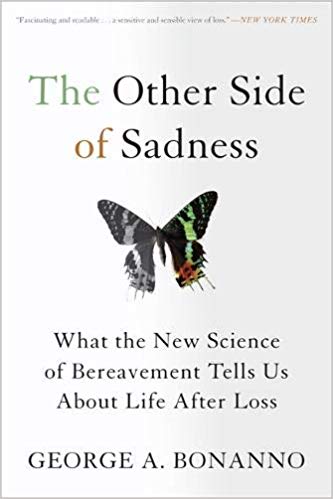 The conventional view of grieving–encapsulated by the famous five stages of grief: denial, anger, bargaining, depression, and acceptance–is defined by a mourning process that we can only hope to accept and endure. In The Other Side of Sadness, psychologist and emotions expert George Bonanno argues otherwise. Mourning is far from predictable, and all of us share a surprising ability to be resilient. Our inborn emotions–anger and denial, but also relief and joy–help us deal effectively with loss. To expect or require only grief-stricken behavior from the bereaved does them harm. In fact, grieving goes beyond mere sadness, and it can actually deepen interpersonal connections and even lead to a new sense of meaning in life.
The conventional view of grieving–encapsulated by the famous five stages of grief: denial, anger, bargaining, depression, and acceptance–is defined by a mourning process that we can only hope to accept and endure. In The Other Side of Sadness, psychologist and emotions expert George Bonanno argues otherwise. Mourning is far from predictable, and all of us share a surprising ability to be resilient. Our inborn emotions–anger and denial, but also relief and joy–help us deal effectively with loss. To expect or require only grief-stricken behavior from the bereaved does them harm. In fact, grieving goes beyond mere sadness, and it can actually deepen interpersonal connections and even lead to a new sense of meaning in life.
The Other Side of Sadness is a must-read for those going through the death of a loved one, mental health professionals, readers interested in neuroscience and positive psychology, and anyone eager to understand our ability to thrive in the face of adversity.
MODERN LOSS: CANDID CONVERSATION ABOUT GRIEF. BEGINNERS WELCOME
– Rebecca Soffer, Gabrielle Birkner, 2018
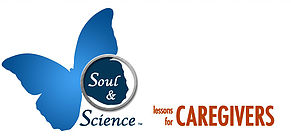
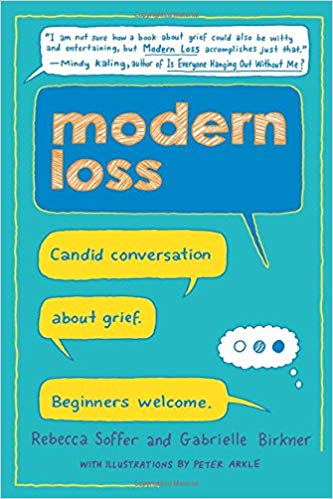 Inspired by the website that the New York Times hailed as “redefining mourning,” this book is a fresh and irreverent examination into navigating grief and resilience in the age of social media, offering comfort and community for coping with the mess of loss through candid original essays from a variety of voices, accompanied by gorgeous two-color illustrations and wry infographics.
Inspired by the website that the New York Times hailed as “redefining mourning,” this book is a fresh and irreverent examination into navigating grief and resilience in the age of social media, offering comfort and community for coping with the mess of loss through candid original essays from a variety of voices, accompanied by gorgeous two-color illustrations and wry infographics.